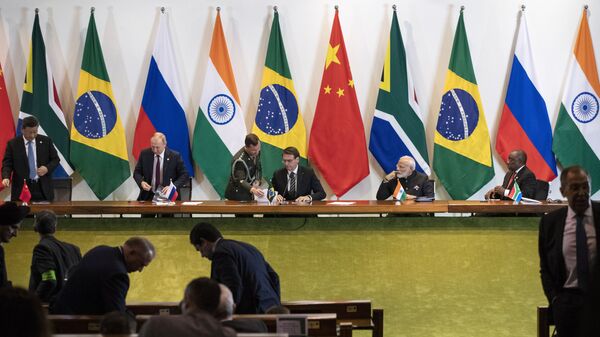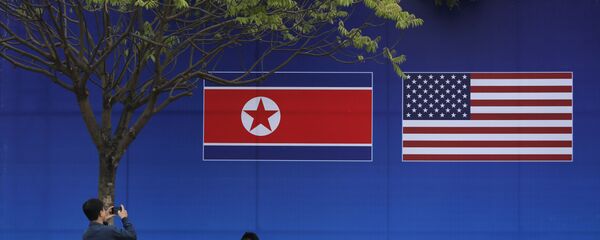The heads of state of Brazil, Russia, India, China and South Africa reaffirmed their commitment to the principles of sovereignty, mutual respect and equality, vowed to boost ties between their peoples, and pledged to defend multilateralism and the UN’s central role in international affairs.
TACKLING CLIMATE CHANGE
On the hot issue of climate change, the leaders reaffirmed their commitment to the 2015 Paris climate deal that sought to drastically cut greenhouse gas emissions in order to stop the planet from warming up.
"We reiterate our commitment to the implementation of the Paris Agreement … including the principle of common but differentiated responsibilities and respective capabilities, in the light of different national circumstances," the document read.
They urged developed countries to step up financial, technological and other aid to developing nations to help them adapt to and mitigate the effects of climate change, including through the Green Climate Fund.
BANNING CHEMICAL WEAPONS
The 20-page declaration reaffirmed the leaders’ support for the Organisation for the Prohibition of Chemical Weapons and the Chemical Weapons Convention (CWC) as an effective disarmament tool.
They also threw their support behind the Convention on the Prohibition of the Development, Production and Stockpiling of Bacteriological and Toxin Weapons and on their Destruction (BTWC).
"We reaffirm that the BTWC is the core instrument for biological and toxin weapons. Its functions, including in what concerns the UN Security Council, should not be duplicated by other mechanisms," they stressed.
The leaders said what this important paper needed was an efficient verification mechanism that could be outlined in a separate protocol.
PREVENTING SPACE ARMS RACE
The five leaders made it clear that an arms race in space was of great concern to them and called for a legally-binding pact that would prevent placing weapons in space.
"We express our serious concern about the possibility of an arms race in outer space and reaffirm the need to carry on activities in the exploration and peaceful uses of outer space," the paper read.
They said a multinational agreement was needed to "fill the gap in the international legal regime applicable to outer space, including on the prevention of the placement of weapons in outer space."
They praised efforts by the UN Group of Governmental Experts on the Prevention of an Arms Race in Outer Space that regrettably failed to reach consensus on a report.
FIGHT AGAINST CORRUPTION
The five nations agreed to continue fighting corruption, including by strengthening domestic legal frameworks, and advocate zero tolerance to corruption globally.
"We will maintain our ongoing efforts on anti-corruption law enforcement cooperation and returning of assets, including on civil and administrative proceedings," they said.
On money-laundering and the use of illicit proceeds to fund terrorism, the leaders said they encouraged dialogue between their nations and reaffirmed their commitment to combating illicit financial flows.
FAST-TRACKING GLOBAL ANTI-TERROR PACT
The joint declaration condemned terrorism in all its forms and called acts of terror "criminal and unjustifiable, regardless of their motivations whenever, wherever and by whomsoever committed."
They called for "concerted efforts" to combat terrorism under UN auspices and stressed the importance of agreeing an urgent anti-terror pact.
"We … call for an expeditious conclusion and adoption of the Comprehensive Convention on International Terrorism within the UN framework," they said.
The document emphasised the need for slashing financing to terrorism and launching multinational talks to address the threat of chemical and biological terrorism.
KOREAN PEACE THROUGH TALKS
The BRICS club of developing nations stands for peaceful settlement of the crisis on the Korean Peninsula through political and diplomatic means, the declaration underscored.
"We reaffirm our support for a peaceful, diplomatic and political solution to the situation in the Korean Peninsula, as well as for its complete denuclearisation. We underline the importance of maintaining peace and stability in North East Asia," it read.
Two sets of denuclearisation talks between North Korea on one side and the United States and the South on the other stalled recently after a year of diplomatic flurry. The allies are concerned about the North’s nuclear and missiles tests, while Pyongyang wants stifling economic sanctions on it lifted.
DEESCALATION IN SYRIA
On the Syrian conflict, the BRICS leaders reaffirmed their commitment to the country’s sovereignty, independence, unity and territorial integrity and called for continued dialogue to resolve the eight-year war.
"We … reaffirm our commitment to advancing a Syrian-led and Syrian-owned, UN-facilitated political process," the declaration said, emphasising the role of the Constitutional Committee.
They also called on all warring parties to allow for unhindered humanitarian access to and a sustainable ceasefire in the region of Idlib, which they said should be freed from UN-designated terrorist groups.
END TO LIBYA FIGHTING
Turning to the war in Libya, the five leaders urged all parties to "cease immediately all military action" and to engage with the UN and the African Union and other stakeholders.
They said the way out of the Libyan stalemate was a "comprehensive and sustainable solution through a Libyan-led and Libyan-owned political process."
Libya has been split between two rival governments. An eastern-based army loyal to Khalifa Haftar has been besieging the capital in the west since April. The standoff between Haftar’s forces and Tripoli-based militias has displaced more than 128,000 people.





